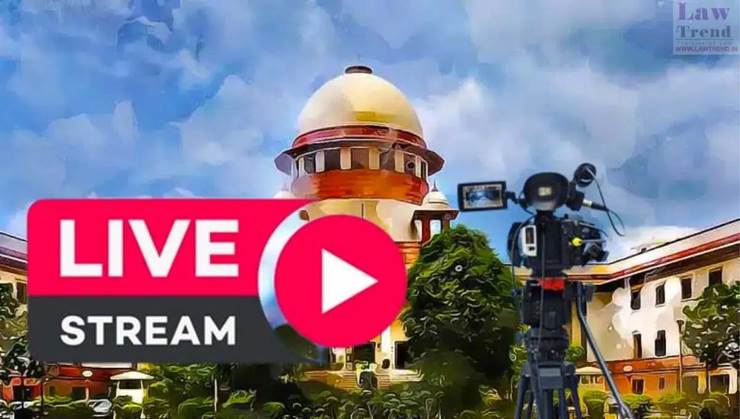Description

Copyright infringement not intended
In News
- The Supreme Court of India has decided to live stream its proceedings in important Constitution Bench cases.
Present status of live streaming of judicial proceedings in India
- In 2018, a Supreme Court bench had agreed to hear a PIL (Public Interest Litigation) aspiring live streaming of judicial proceedings on important matters of constitutional and national importance.
- The Supreme Court approved a set of guidelines and also did not allow live streaming in the cases involving:
- Matrimonial matters.
- Matters involving juveniles or the protection and safety of the private life of young offenders.
- Matters of National security.
- To ensure that victims, witnesses or defendants can depose truthfully and without any fear. Special protection must be given to vulnerable or intimidated witnesses.
- It may provide for face distortion of the witness if she/he consents to the broadcast anonymously.
- To protect confidential or sensitive information, including all matters relating to sexual assault and rape.
- Cases which may provoke sentiments and arouse passion and provoke enmity among communities.
- Currently, the Gujarat, Jharkhand, Karnataka, Madhya Pradesh, Orissa, and Patna High Courts live stream their proceedings.

Live streaming of judicial proceedings around the Globe
- In USA: The US Supreme Court has rejected appeals for broadcast of its proceedings, but since 1955 allowed audio recording of oral arguments.
- In Australia: Live or delayed broadcasting is allowed but the practices differ across courts.
- In Brazil: Since 2002, live video and audio broadcast of court proceedings is allowed.
- In Canada: Court Proceedings are broadcast live on Parliamentary Affairs Channel.
- In United Kingdom: Court Proceedings are broadcast live with a one-minute delay on the court’s website, but coverage can be withdrawn in sensitive appeals.
Significance of the step
- Broadcasting court proceedings will ensure transparency and greater access to the justice system.
- Citizens have a right to know what arguments are made and the responses of the judges as their judgements bind us all.
- The principle "justice should not only be done but seen to be done".
- Live Steaming would empower, and provide access to citizens who cannot personally come to court due to social, economic, health, or physical disability-related limitations.
- It would enable citizens to have first-hand information on case proceedings on issues of constitutional importance that affect them directly or indirectly.
Concern
- The individuality of judges is more likely to become a subject of public debate through live-streaming, creating problems of its own.
- Lawyers aspiring to publicize themselves through their addresses to the Bench.
- It will affect the normalcy of the proceedings.
- Video clips of court proceedings are already on social media platforms with sensational titles and little context, such as “HIGH COURT super angry on IAS/IPS officer”. This irresponsible use of content could spread disinformation among citizens.
Way Forward
- Live streaming is neither required in all types of matters nor in all courts.
- Live streaming or videography could be avoided in the matters which have a privacy dimension, such as family matters or criminal matters.
- Any Kind of Misuse of court proceedings video must be dealt with strict law and also need to formulate guidelines to promote the positive impact while curbing the negative one.
https://indianexpress.com/article/explained/live-streaming-of-sc-proceedings-the-rationale-and-the-concerns-8164955/
https://t.me/+hJqMV1O0se03Njk9













